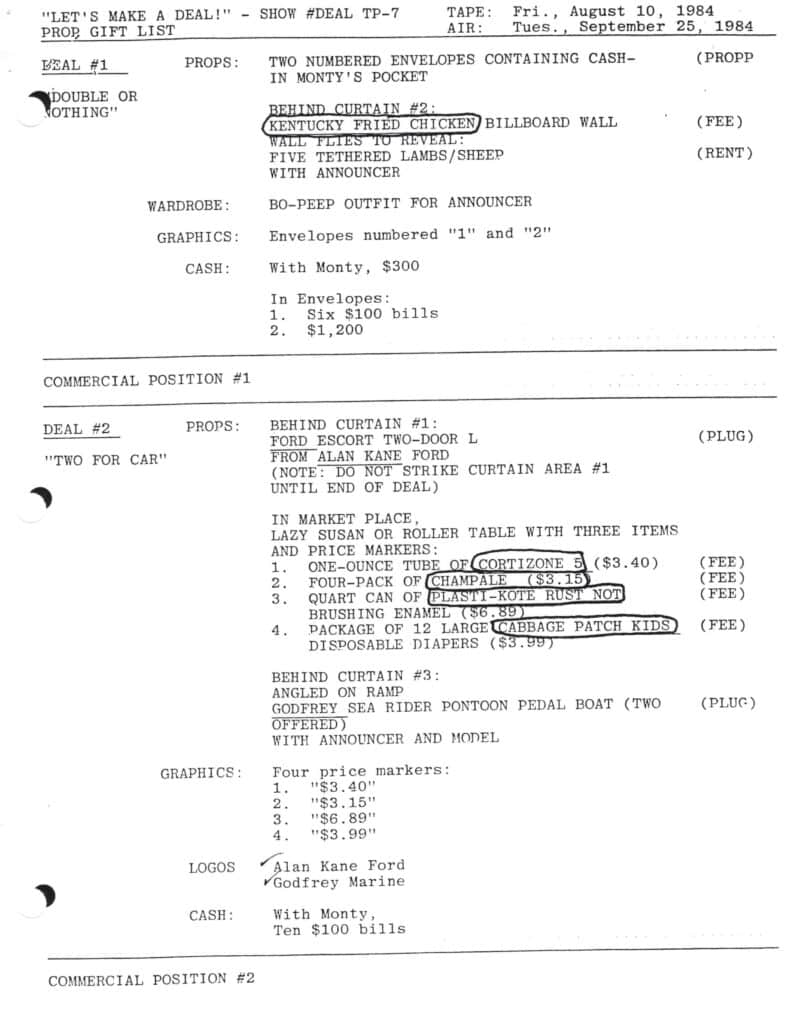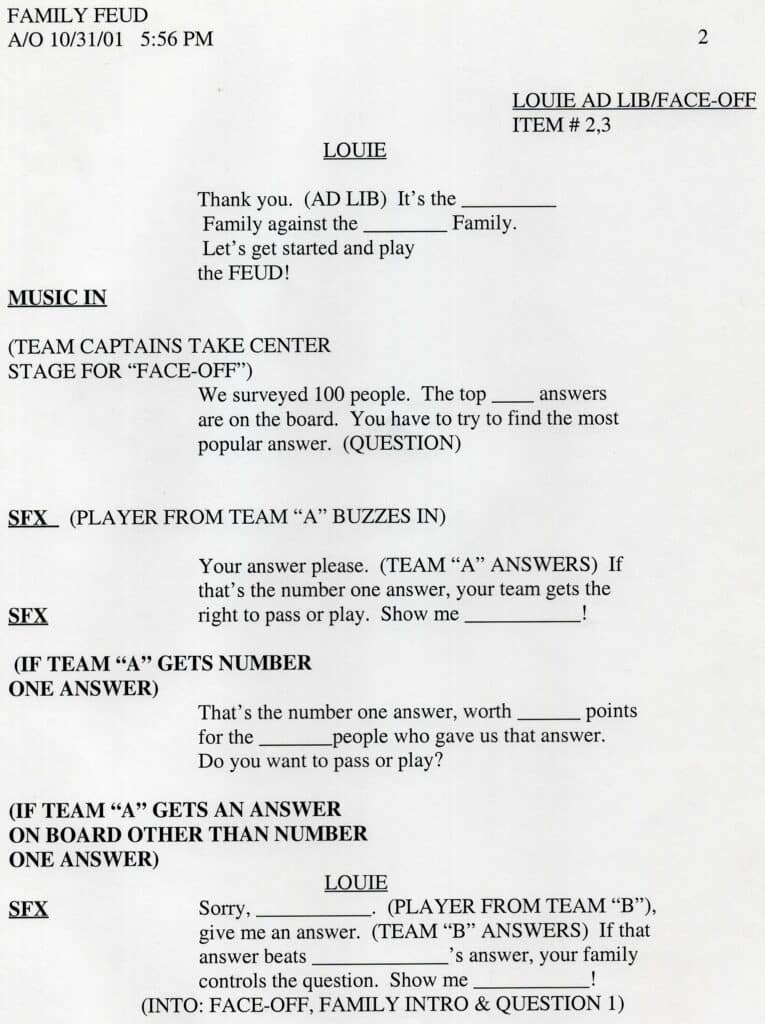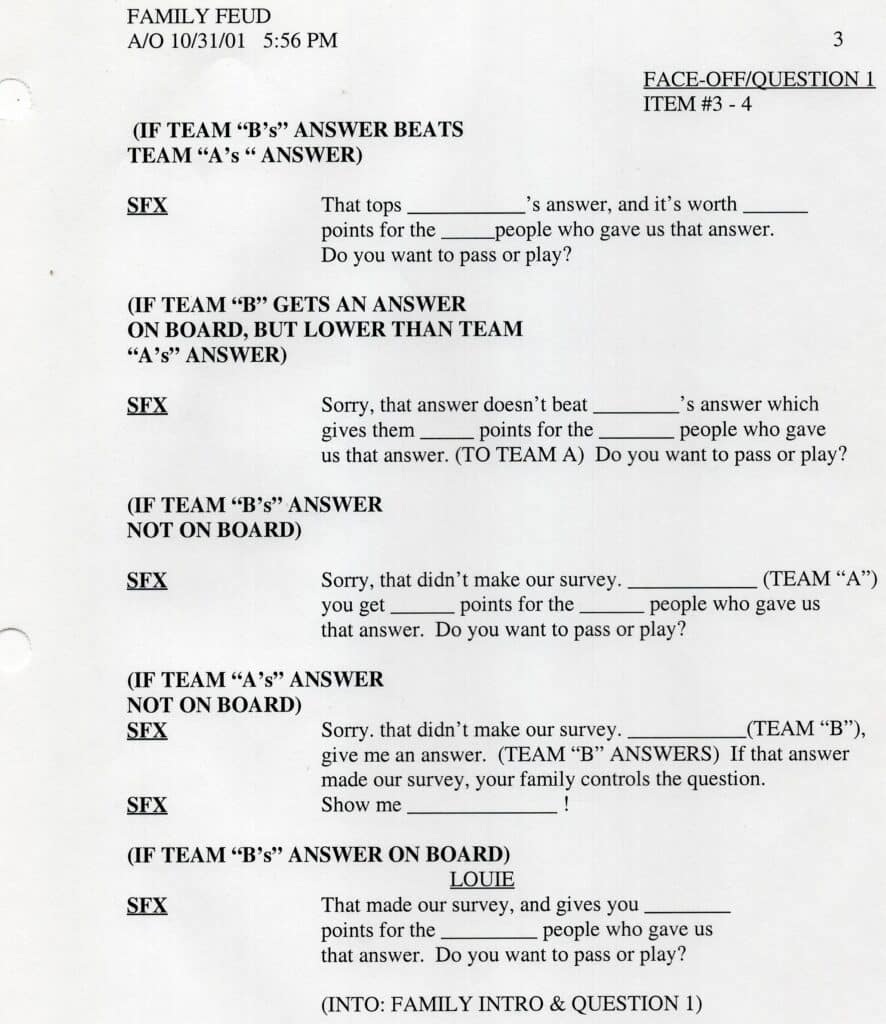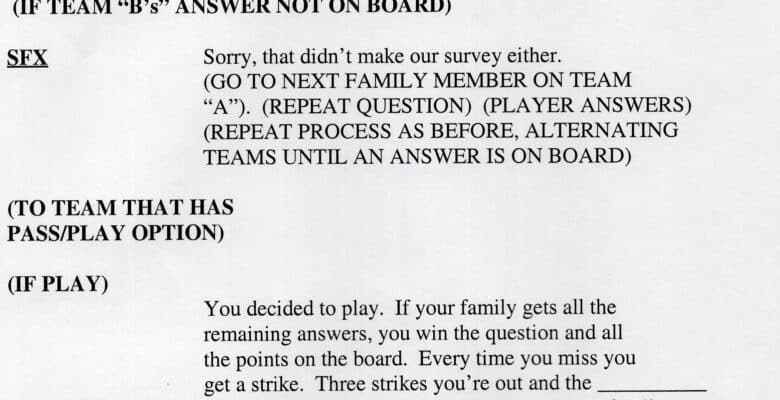By Adam Nedeff, researcher for the National Archives of Game Show History
The National Archives of Game Show History has been fortunate to have many eager contributors donate their prized possessions to be preserved. Among the many treasures that have been donated: set pieces, handheld props, question cards, photographs and slides, tickets, and scripts.
“Wait a minute, scripts? Game shows have scripts?” you might be asking.
Game shows do have scripts, but not in the sense you’re thinking. It’s important for everyone to be on the same page, literally and figuratively, with how the game is played; the terms the show uses for specific parts of the game; and where on the stage the host and contestants should be for each part of the game. So yes, a script is necessary for a game show.
What makes game shows different from any other genre, of course, is that most of the “performers” have never seen the scripts for a game show. The contestants are real, everyday people who have been briefed on the rules before going onstage, but now, they’re on their own, with only the host to guide them through the next 30 minutes or so.
Here we have a look at two types of scripts that game shows might use.
The first is a script for Let’s Make a Deal, hosted by Monty Hall in 1984. Let’s Make a Deal has always presented a broad and perpetually changing array of “deals” and mini games. Each deal and each game involves many different possibilities—the announcer walking out with something concealed in a box on a tray; an enormous box on the display floor; three curtains or three doors, any of which can be hiding anything; etc. Many deals also have built-in variables. “If the contestant chooses option A, then thing 1 happens. If the contestant chooses option B, then thing 2 happens.”
Because of the broad variety of elements and possibilities, every one of the thousands of episodes of Let’s Make a Deal had a unique script.

Many game show formats are more consistent than Let’s Make a Deal. Family Feud, for example, is a series of survey questions where families try to guess the answers that the survey group gave, until reaching a goal score. The winning family plays Fast Money. It’s the same every day. For game show formats that are so straightforward, the show uses what’s often called a “shell script.”
A shell script is a single script that covers everything that could ever possibly happen during the game, and the same script will be used for every episode until some change is made to the way that the game is played. A shell script could be used for years on end. Here’s a look at a shell script that Family Feud was using in 2001, when Louie Anderson was hosting.


Feud would be considered by many viewers as a “simple” game, which is why it’s so surprising to see how intricate this shell script is. Broadly, it’s an easy game to explain, but there are a lot of tinier mechanisms that could potentially come up in each game, and the shell script needs to cover each of them. Over time, the host will become so accustomed to explaining these details that explaining them will sound more natural than it reads on the printed page.
So there you have it. Yes, game shows do have scripts.



